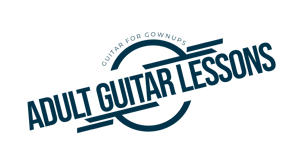Make Your Own Music
Whether you have been playing guitar for 30 days or 30 years you will, at some point, more than likely be struck by the urge to write your own songs.
I have often said in my guitar lessons courses that the real goal of any musician is to transcend from “thinking” about playing to “not thinking” about playing. To move from re-creating to creating.
It is in these moments that inspiration takes over and the songwriter comes out. If you’ve never written songs before here are some pointers on getting started.
Step 1 – Learn Guitar
This may seem like stating the obvious, but a solid working knowledge of the guitar will take you a long way towards writing good songs. You don’t have to be a virtuoso to write songs, but knowing your basic open chords (majors, minors, major 7th’s etc.) will open up the doors of musical possibilities for you.
Armed with this basic knowledge you can explore different chord progression possibilities and even experiment with chord voicings that you invent on your own.
Nashville, TN is a songwriting Mecca and has produced numerous hit songwriters, many of which have a very limited knowledge of the fret board. Many of those are vocally challenged as well, but have developed an innate sense songwriting style and lyrical prose in spite of their limitations. Most do, however, have a basic understanding of the instrument under their belt.
Things You Should Work On
1. As stated earlier, a working knowledge of the major and minor chords, major and minor 7th chords, 7th and 9th chords, and basic barre chords will get you a good start.
2. An understanding of standard chord progressions is important. Although there are no “rules” when songwriting, there are however, tried and true chord progressions that have been used successfully over and over throughout the years. A couple of examples would be the I, IV, V chord progression and the I, VIm, IV, V chord progression.
3. Study hit songs of the genre that you are passionate about. It’s fairly easy to figure the chord progression of most songs, so have a notepad handy and write down the progression of every song you can.
This is not only a great way to train your ears, but it also helps to ignite sparks of creativity in your own music by listening to the music of others.
Many hit songs will have similar chord progressions played over different melodies, so over time, you will learn to recognize familiar progressions without even picking up your guitar.
So if you have thoughts of writing your own music, it would serve you well to make the effort to study the hit songs, and figure out what makes them “tick”, then emulate and integrate some of those concepts into your own writing.


